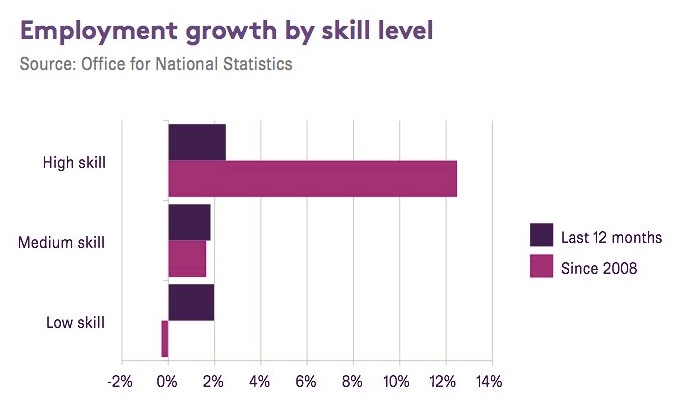Supporting start up businesses
One of the best things about Twitter is the ability to follow links to all kinds of things you probably would never have been to without it. And so I find in my notes somewhere the link to an article in Quartz – an online magazine (?) about which I know nothing. The link is to a loosely researched article about entrepreneurism – making the point that there is not much thing as an entrepreneurial gene but rather propensity to take risk and to set up new businesses is more like to be related to access to money – in other words to class.
The article, attributed to REUTERS/Allison Joyce, quotes University of California, Berkeley economists Ross Levine and Rona Rubinstein who “analyzed the shared traits of entrepreneurs in a 2013 paper, and found that most were white, male, and highly educated. “If one does not have money in the form of a family with money, the chances of becoming an entrepreneur drop quite a bit,” Levine tells Quartz.”
Entrepreneurship is all the trend in Europe at the moment, especially in the recession and austerity hit southern countries, where setting up a business is seen as one of the few ways of getting a job. However the rhetoric seems to overplay the potential of technology (everyone can be the next Steve Jobs!), whilst ignoring sectors of the economy such as tourism which probably represent better opportunities within the existing labour market.
At the same time programmes such as the EU Youth Guarantee fund are being used to set up support agencies for young people wishing to set ups their own business and we are seeing the increasing emergence of co-working spaces for new enterprises. But anecdotal evidence – and some reports although I cannot find them at the moment – suggest that many of these businesses are struggling to survive beyond the first one or two years. In austerity Europe bank capital remains hard to come by and most young people do not have access to their own funds to consolidate and explained their business. Although initiatives like the EU SME programme are very welcome, access to such funding is not simple and anyway the amount of grants on offer are simply insufficient. As European politicians slowly wake up to the disaster austerity policies have wrought, then establishing better support for new businesses should be a priority, tied to easy access to small business start up capital.




